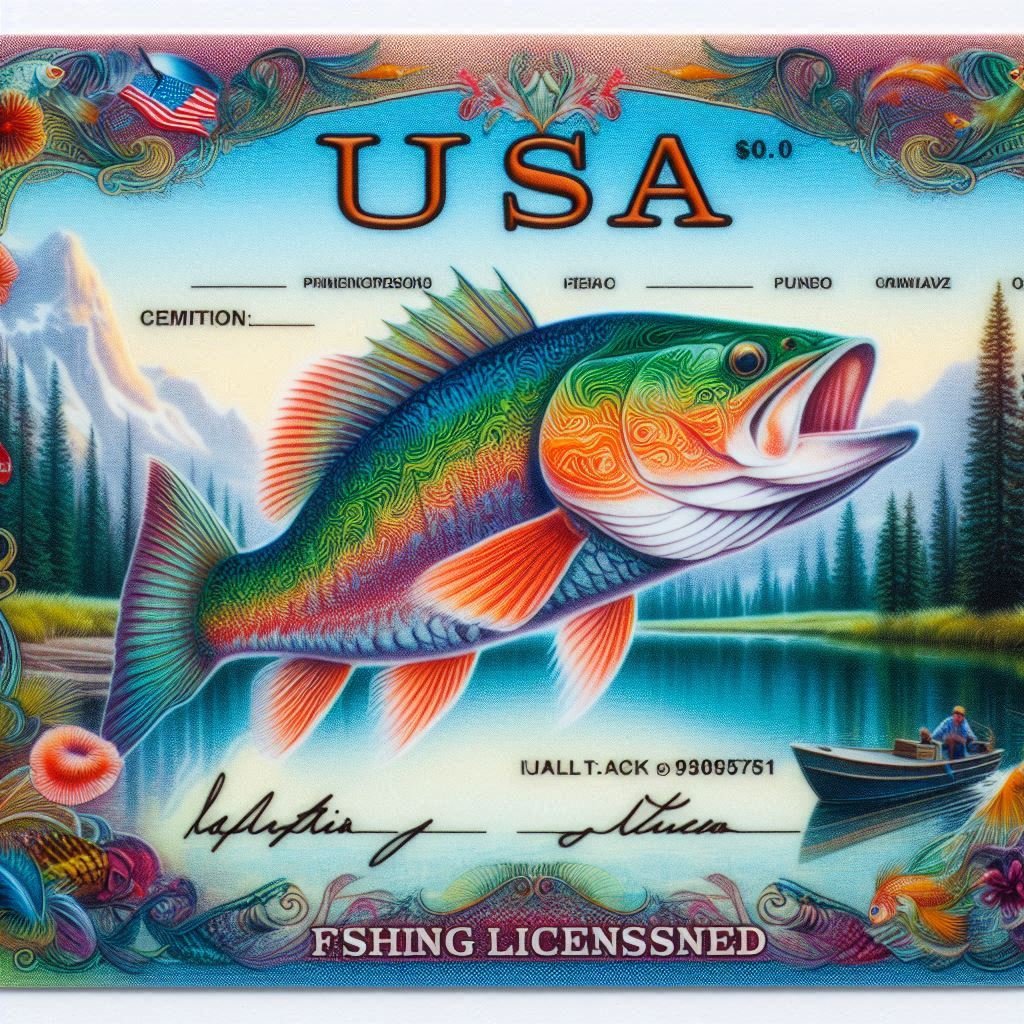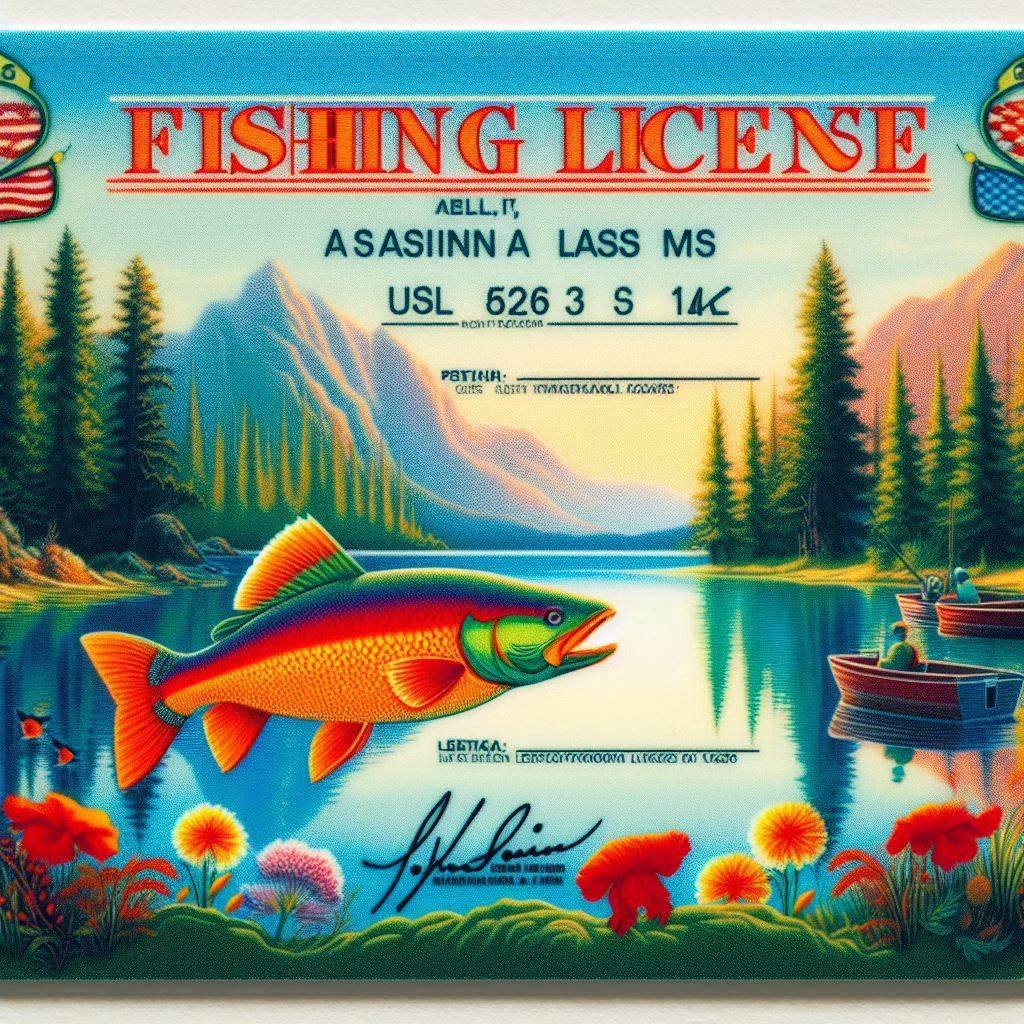Planning to fish in Tennessee? Before you cast that first line, you’ll need to obtain a valid Tennessee fishing license. Whether you’re a resident of the state or visiting from out of town, this guide breaks down everything you need to know about the Tennessee fishing license, including the cost, requirements, benefits, and step-by-step instructions on how to get one.
Fishing in Tennessee offers access to a variety of waterways, including beautiful lakes, rivers, and reservoirs, all teeming with diverse fish species. From bass in Norris Lake to trout in the Great Smoky Mountains, fishing in Tennessee is a recreational experience that draws anglers from all over the country. But first, you’ll need to understand how to obtain a fishing license and what the rules are for both residents and non-residents.
What Is a Tennessee Fishing License?

A Tennessee fishing license is a legal permit that allows individuals to fish in the public waters of the state. Issued by the Tennessee Wildlife Resources Agency (TWRA), this license helps maintain sustainable fishing practices, regulate fishing seasons, and contribute to the conservation of aquatic habitats.
For Tennessee residents, this license grants access to the state’s vast network of lakes, rivers, and streams. For non-residents, the state offers temporary or annual licenses that grant the same privileges for a designated period.
Step-by-Step Guide to Getting a Tennessee Fishing License
Obtaining your Tennessee fishing license is a relatively straightforward process. Let’s walk through the steps.
Step 1: Determine Your Residency Status
The first thing to consider is whether you’re a resident or a non-resident of Tennessee. Residents are generally those who have lived in the state for more than 90 days. If you’re visiting from another state, such as North Carolina, you will need to apply for a non-resident fishing license.
Step 2: Choose the Type of License You Need
Tennessee offers several different types of fishing licenses to suit different anglers’ needs. Here are the most common ones:
- Annual Resident Fishing License: For Tennessee residents, usually valid for one year from the date of purchase.
- Non-Resident Fishing License: For out-of-state anglers, available in both annual and short-term (1-day or 3-day) options.
- Senior License: Discounted licenses are available for Tennessee residents over 65 years old.
- Trout Stamp: Required for fishing in trout-stocked waters, an additional purchase if you want to fish for trout specifically.
Step 3: Gather Necessary Information
When applying for a Tennessee fishing license, you’ll need to provide the following:
- Full name and contact details
- Date of birth and proof of residency (for residents)
- Social security number (may be requested)
- Payment method (credit/debit card or cash)
Step 4: Choose an Application Method
There are two main ways to get your Tennessee fishing license:
- Online: Visit the TWRA website, where you can quickly fill out your application and pay the associated fees.
- In Person: Visit an authorized retailer, such as a bait shop, sporting goods store, or TWRA office, to apply in person.
Step 5: Pay the License Fee
The cost of your fishing license will depend on the type and duration:
- Annual Resident License: $34
- Non-Resident License: $50-$75 depending on duration
- One-Day Non-Resident License: Around $10
- Senior Resident License: $10
The payment can be made through credit or debit card online, or cash or card in person.
Step 6: Receive and Keep Your License
Once you’ve completed your application and payment, you’ll receive your fishing license. You can either get a physical copy to carry with you, or digital copy that you can store on your phone or other devices. It’s advisable to keep a copy in both forms in case of any issues while fishing.
Requirements for a Tennessee Fishing License

To fish legally in Tennessee, you must meet the following requirements:
- Age: Anyone over the age of 13 must have a valid fishing license. For residents under 13, no license is required.
- Residency: Non-residents must apply for a non-resident fishing license, whether they are visiting from other states like North Carolina or any other part of the country.
- Trout Stamp: If you plan to fish for trout in designated areas, you must purchase an additional trout stamp.
- Special Permits: Some bodies of water or fishing events may require additional permits, such as for specific types of fish (e.g., salmon).
How to Get a Tennessee Fishing License Online
Applying for a Tennessee fishing license online is easy and convenient. Here’s how you can get started:
- Visit the TWRA Website: Go to the official Tennessee Wildlife Resources Agency site.
- Navigate to License Section: Select the appropriate fishing license section based on your status as a resident or non-resident.
- Fill Out the Form: Complete the form by entering your personal details, selecting the type of license, and choosing your payment method.
- Download or Print Your License: After payment, you can either download a digital version or request a physical copy if necessary.
The Cost of a Tennessee Fishing License

The cost of a Tennessee fishing license can vary based on your residency status and the type of license you choose. Here’s a breakdown:
- Resident Annual License: $34
- Non-Resident Annual License: $50
- One-Day Non-Resident License: $10
- Trout Stamp: $10 (for residents and non-residents)
- Senior Resident License: $10 (available for those 65+)
Non-residents have the option to purchase short-term licenses, like the one-day or three-day fishing license, which are perfect for those visiting from states like North Carolina and looking to fish for a brief period.
Benefits of Having a Tennessee Fishing License
Getting a Tennessee fishing license comes with several key benefits:
- Access to Public Waters: With a valid license, you can fish across Tennessee’s extensive river systems, lakes, and reservoirs.
- Conservation Efforts: Your fishing license fees go toward conservation efforts, including maintaining fish populations and protecting aquatic environments.
- Participation in Events: Many fishing tournaments, such as bass fishing competitions, require anglers to have a valid license to participate.
- Legal Protection: By getting a fishing license, you avoid fines or penalties that can result from fishing without one.
How to Maintain and Renew Your Tennessee Fishing License
Your Tennessee fishing license is valid for a full year from the date of purchase. You can easily renew it by following the same steps you used to obtain your original license, either online or in-person at an authorized retailer. Make sure to keep track of your renewal date to avoid fishing on an expired license, which can lead to penalties.
Many anglers opt for auto-renewal when applying online to avoid forgetting to renew each year.
Fishing in Tennessee with NC Fishing License

If you’re coming from North Carolina (NC), you might be wondering if your NC fishing license will allow you to fish in Tennessee. The short answer is no—you cannot use a North Carolina fishing license to fish in Tennessee. However, Tennessee offers an option for non-residents, including those from North Carolina, to obtain a Tennessee non-resident fishing license.
For anglers who plan to fish both in North Carolina and Tennessee, it may be worth considering the multi-state fishing license options available through some state agreements. This allows anglers to fish in both states under a single license, saving time and money.
